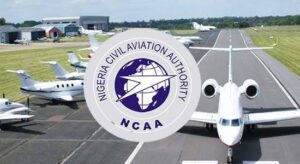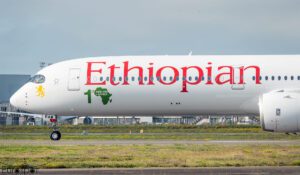
IATA tasks Global air Transport industry to achieve net-zero carbon emissions by 2050
By Tobi Adetunji
The International Air Transport Association (IATA) has approved a resolution for the global air transport industry to achieve net-zero carbon emissions by 2050.
This commitment will align with the Paris Agreement goal for global warming not to exceed 1.5°C.
This was disclosed by IATA via a statement issued earlier in the week and seen by Nigerian NewsDirect.
According to IATA’s Director General, Willie Walsh, he stated, “The world’s airlines have taken a momentous decision to ensure that flying is sustainable.
“The post-COVID-19 re-connect will be on a clear path towards net zero. That will ensure the freedom of future generations to sustainably explore, learn, trade, build markets, appreciate cultures and connect with people the world over.
In his words, “With the collective efforts of the entire value chain and supportive government policies, aviation will achieve net zero emissions by 2050.
“Achieving net zero emissions will be a huge challenge. The aviation industry must progressively reduce its emissions while accommodating the growing demand of a world that is eager to fly.
“To be able to serve the needs of the ten billion people expected to fly in 2050, at least 1.8 gigatons of carbon must be abated in that year. Moreover, the net zero commitment implies that a cumulative total of 21.2 gigatons of carbon will be abated between now and 2050.”
A key immediate enabler is the International Civil Aviation Organization’s (ICAO) Carbon Offsetting and Reduction Scheme for International Aviation (CORSIA). This will stabilize international emissions at 2019 levels in the short-to-medium term. Support for this was reaffirmed in today’s resolution.
IATA further revealed that the path from stabilizing emissions to emissions reductions will require a collective effort. All industry stakeholders, including governments must each individually take responsibility to address the environmental impact of their policies, products, and activities. And they must work together to deliver sustainable connectivity and ultimately break aviation’s dependence on fossil fuels.
“Achieving sustainable global connectivity cannot be accomplished on the backs of airlines alone. All parts of the aviation industry must work together within a supportive government policy framework to deliver the massive changes that are needed, including an energy transition. That is no different than what we are seeing in other industries.
“Road transport sustainability efforts, for example, are not being advanced by drivers building electric vehicles. Governments are providing policies and financial incentives for infrastructure providers, manufacturers and car owners to be able to collectively make the changes needed for a sustainable future. The same should apply to aviation,” Walsh added.



